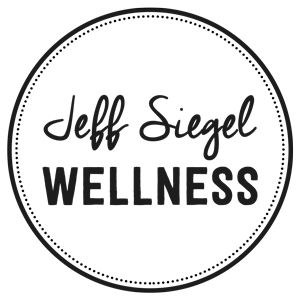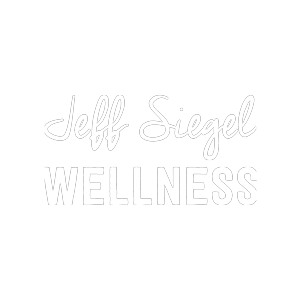When you wake up, what do you think about first?
- Do you immediately start scrolling on your phone?
- Do you start organizing all your daily to-dos?
- Do you think about all your meetings, calls, and obligations?
What if spent 10 minutes crafting your day to optimize what truly matters?
The Importance of Starting on The Right Foot
A conscious morning practice should do two things:
- Align what you do with how you do it.
- Focus your energy on who you become in the process of living this day.
For years, I have played around with different ways of optimizing my morning routine. Gratitude journals, inspiring quotes, and uplifting visualizations have all been helpful to set the tenor for my day.
But after numerous iterations, I keep coming back to one simple format for making the most of my mornings — The ACE Morning Practice.
What Is The ACE Morning Practice?
It is a simple way to turn your regular to-do list into a “to be” list.
The three prompts make all the difference between living proactively instead of reactively. They will shift your day from something happening to you to an experience happening through you and for you.
What are the three questions?
- What or who can I Appreciate?
- What can I Contribute?
- What Experiences do I want to Co-create?
How the ACE Morning Practice Will Enhance Your Day
1. Appreciate
Appreciation sets the frame to look for what’s good and positive in your life. We all need this reframe because without conscious intervention, our brain will habitually seek and find problems.
It’s not our fault. Our brain is doing what it’s designed to do — respond to real threats and prepare for potential ones. It’s nervously looking around for something to worry about. That’s why it is called a “nervous” system. It tends to be anxious.
To override this inherent bias wired into your neurobiology, ask yourself:
· What can I appreciate today?
· Who can I appreciate today?
· What/who might I take for granted that I can acknowledge?
· How can I show that appreciation in words or actions?
2. Contribute
Contribution gets you thinking about what you offer to the world. Even if you feel like you’ve got nothing, just being you is enough. You can impact others in ways you never know.
Plus, when you start to focus your energy on sharing your strengths and passions, you’ll find the day becomes more meaningful and satisfying.
· What can I contribute today?
· What can I offer that the world needs?
· With whom can I share these contributions?
Your contributions do not need to be tangible. In fact, some of the most powerful contributions are simply a nice gesture or warm-hearted presence. Showing up for someone with a smile and a willingness to listen can be the most valuable part of their day.
Try showing up to your day, not with an attitude of “what I can get,” but “what I can give.” This shift can be magical.
3. Experiences (to Co-create)
Most days aren’t blank pages. They’re more like a coloring book with some images already outlined for you. These outlines are your jobs, activities, and chores. The things that need to get done.
But no matter how busy your day is, you still have a choice in how you show up and color in these experiences. Moreover, most of these are not done alone. They are opportunities to work with others and co-create something that neither of you could do alone.
Focusing on experiences helps you go beyond thinking of your day as items to check-off a list. It refocuses on the entirety of what you want to feel as you’re going about your day.
It is easy to assume that you will feel a certain way doing a certain thing. We show up at work, already filled with assumptions of how it will go, and then we hit “play” and act out our anticipated experience. It’s robotic and mechanical.
Rather than going through the motions or chasing after what you think you should want, ask yourself, “What experience do I really desire? How can I create this with others?
When you focus on co-creating experiences that bring out the best in everyone, it makes the day a springboard for your evolution. When you shift into the perspective of co-creation, life starts happening for you — for your own learning, growth, and evolution — rather than life happening at you (which is often scary and not very fun.)
Ask yourself:
· What experience do I want to co-create today?
· What feelings and emotions characterize this experience?
· What will help me evolve and become a better human?
· Why is this experience important? (How will this experience help everyone become better?)
· Where does this experience take place? With whom?
· What do I need to do to make sure this actually happens?
Remember, the exact way in which any given experience unfolds is less important than the overall intention. Don’t get overly attached to unimportant details. This turns co-creating experiences into an act of control that serves no one.
Instead, focus on the quality of your desired experience, how it benefits yourself and others, and build from there.
On the outside, the experience you write down might look exactly the same as something you’ve always done. But on the inside, it can feel totally different. The people around you will know. You will know.
How the ACE Morning Practice Can Help You Enhance Your Daily To-Do List
The beauty of the ACE morning practice is that it works as a stand-alone set of inquiries or as a way to enhance the activities you already have planned.
For example, if your daily to-do list looks like this:
- 8am: Do the laundry and clean
- 9am: Finish the document and email it
- 1pm: Meet with Whitney and Paul to discuss the new program
- 5pm: Go for a run
If you take each of these items and think about how they fit into the ACE framework, you can transform these to-dos into opportunities to appreciate, contribute, and experience the life you want.
I’ll walk you through an example of merging the ACE with daily tasks.
Do the laundry and clean
Appreciate that you have a washer and dryer and plenty of clean, if not fashionable, clothes to wear. (It may help to remember those times when you had to walk down the street to the coin-op laundry mat.) Instead of begrudging this task, be grateful for your material possessions. You bought them after all.
This could also be an opportunity for contribution. If you are washing clothes for your partner or your family, you can turn it into an act of service rather than a chore. Think about how nice it will be for your loved ones to return home to clean clothes.
Finish the document and email it.
You could frame this as an opportunity to contribute your knowledge, skills, and expertise to the project.
- What comments or suggestions can you make that speak to your unique perspective?
- How can this showcase what you are good at?
You could also frame this in terms of the experience you want to have. Maybe you want to experience the joy of completing a task and shipping it off. When the moment comes, pause and really appreciate the work that you put in and the sense of accomplishment it brings. Also appreciate the work others put into this or how others will build on what you’ve done. Co-creation in action.
Meet with Paul and Whitney to discuss the new program.
Here is an obvious place for contribution.
- How can you lend your unique talents and gifts to this meeting?
- What perspectives can you bring that nobody else can?
This is where contribution and connection link with each other. It isn’t about just what you can do alone. It‘s about what you can co-create together. Contribution depends on connection.
Go for a run.
Think about your run in the light of the type of experience that you want to have. Exercise can generate lots of uplifting and empowering emotions. Focus on these. Not the discomfort.
If you’re inside, pay attention to how good it feels to be in a body that can move. If you’re running outdoors you may want to experience the scenery and fresh air. Tune into that sense of aliveness that arises through intentional movement and breath.
Think about the people you run by. Can you smile, wave, or say hi?
Think about the experience of being an animal moving through nature. Connect with the other animals — the birds, the squirrels, whatever creatures are in your neighborhood — and see the experience as a moment of gratitude in motion.
All together your annotated calendar might look like this:
- Do the laundry (Appreciate clothes)
- Finish the retro document and email it (Contribute thoughtful comments)
- Meet with Whitney and Paul to discuss the new program. (Contribute to co-create)
- Go for a run (Experience embodied energy)
Why Your Morning Practice Matters
Most mornings are mindless unless you choose to make them otherwise. Don’t just let your day slip by.
The ACE morning practice gives you the opportunity to make your whole day more conscious, more intentional, and more fulfilling.
- You have an opportunity to appreciate the good things in your life.
- You have an opportunity to contribute to the lives of others.
- You have an opportunity to experience emotions that bring you joy and fulfillment and moments that help you evolve as a human.
This opportunity awaits you every morning if you choose to pursue it. I’ve made my choice to ACE my day. Will you?
With appreciation and excitement,
P.S. A client of mine took this morning practice and added in another important element: Presence.
He always started his day by focusing on what he was present too — scanning his body and mind for what was true at that moment.
Before moving on to the ACE visioning process, mindfully meditating allows you to start exactly where you are. It turns the “ACE” practice into the “PACE” practice. Life is a marathon. Pace yourself.
I have an entire course Commit to Sit that teaches you exactly how to start and sustain your own mindful meditation practice. Check it for yourself. It’s ENTIRELY FREE. Seriously, don’t miss this opportunity to master your mind and your day.


